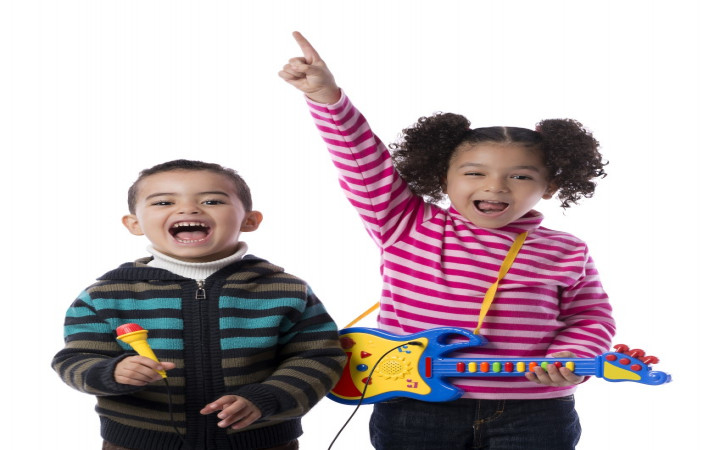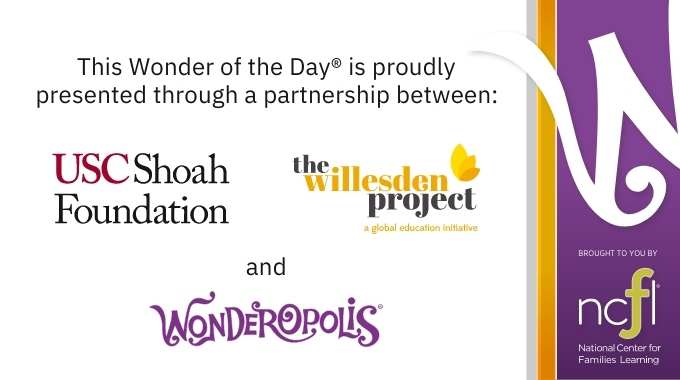Today’s Wonder of the Day was inspired by Nancy. Nancy Wonders, “How does music influence your mood?” Thanks for WONDERing with us, Nancy!
Do you believe in the power of music? If you're like most kids these days, you probably have an electronic device loaded with hundreds or even thousands of your favorite songs. At any moment in time, you can fill your headphones with the sounds of a particular song that suits your mood at that exact time.
Are you getting ready for a big soccer match and need to get pumped up? Maybe some hip hop with a wicked beat will do the trick! Instead, you might be ready to study for a big exam the next day. To calm your nerves and help you concentrate, a little bit of Mozart might make memorization more manageable.
Your personal experience probably tells you that there are all kinds of music for all kinds of moods and situations. Maybe you’ve even felt the power of music firsthand. We've all been moved by songs that spoke to us at certain times. Music can have a major impact on the way we see the world around us and interact with others.
If you watched the video at the top of this Wonder of the Day, you’ve already seen an example of this. In the clip, famed concert pianist and author of “The Children of Willesden Lane” books, Mona Golabek, describes the special place music held for her mother, Lisa Jura. Jura, a Holocaust survivor, played music in the hostel where she lived with other refugee children after escaping Nazi-occupied Europe. The music comforted the children. It gave them something beautiful to bond over during a very difficult time.
Is there any scientific evidence of these effects that music seems to have? You bet there is! Scientists have long recognized the power of music. Over the years, many studies have been conducted to examine in greater depth the nature and extent of the effects music has on people.
For example, scientists at the University of Missouri have found that listening to music can improve your mood. Their research lends scientific credibility to the behavior many people have already experienced on their own: listening to upbeat music can brighten your day and boost your mood.
Other studies have shown that upbeat music isn't the only type that can be helpful, however. When people are sad or have suffered a personal loss, sad music can be soothing and helpful, because people identify with the tone and lyrics of the music.
Likewise, people under a lot of stress or experiencing frustrating circumstances can benefit from listening to angry music. While angry music might not help you if you're in a normal mood, its aggressive tone can be beneficial when dealing with stressful, frustrating circumstances.
These scientific studies have helped scientists and researchers develop the field of music therapy. According to the American Music Therapy Association, music therapy is “the clinical and evidence-based use of music interventions to accomplish individualized goals." Today, music therapy is used to help people improve mood, restore energy, and heal more naturally.
Of course, music also has other mental benefits beyond improving our mood. Music can also help our memory. Don't believe us? Try to say your ABCs without singing the tune you learned when you first learned to memorize the alphabet. You may find it much more difficult!
Scientific research has shown that pairing music with rhythm and pitch can help to enhance learning and improve recall. Not only does music tend to help us pay attention, but it also can make an otherwise boring task more enjoyable, thus leading to more effective tasks, such as memorization.
Has music ever helped you through a tough time? Has it helped you celebrate a happy event? Spend a few minutes today thinking about the music that moves you, and talk with a friend or family member about what makes it special.
Preserving memories are a vital part of the human experience, and USC Shoah Foundation’s Visual History Archive contains over 55,000 testimonies from survivors and witnesses—using audio and video—to educate future generations about the Holocaust and other atrocities, in support of the Institute’s mission to develop empathy, understanding, and respect through testimony so the next generation understands the importance of learning from the Holocaust and making the world a better place. Its IWitness platform contains many of these testimonies that were gathered using recorded interviews to tell the stories of survivors and witnesses.
Standards: CCRA.L.3, CCRA.L.6, CCRA.R.1, CCRA.R.2, CCRA.R.4, CCRA.R.10, CCRA.SL.1





